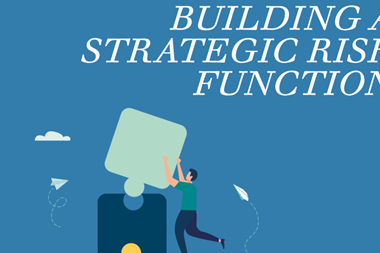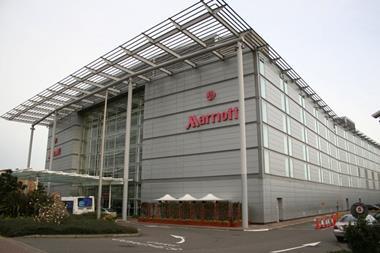Sue copeman interviews AIRMIC’s retiring chairman, Geoff Taylor
What do you see as the highlights of your year as AIRMIC chairman? And were there any down-sides?
I think that just being the chairman is a great privilege for any UK risk manager or, in my case, a risk manager who is not domiciled in the UK. I’m probably the first overseas chairman that AIRMIC has ever had.
Starting Risk Publishing Online has been quite a landmark. Another highlight has been getting to work with a great team of people, both the secretariat and the council. Everyone in that AIRMIC team is passionate about doing something good for risk management. We are very lucky to have such a good council with a lot of talent available and an experienced secretariat that supports the council.
I don’t think there have been any significant down-sides. I can only regard my experience as being very rewarding both from a personal and a business point of view. It is not often a risk manager gets to be chairman of the board of directors of any organisation. That is a great opportunity for personal development. You are always learning new skills and I certainly acquired some.
It’s particularly challenging as AIRMIC is a volunteer organisation. The members are not compelled to do what they do and you have to work with people to get them engaged. It has also been rewarding from my company’s point of view because my appointment as chairman has meant that they’ve been seen as a big supporter of risk management.
How easy was it to combine the role of chairman with the demands of your job?
That is of course always challenging. When I first took on the role, my boss said that it was great that I had been given this privilege but added the caveat “as long as you get all your other work done”. I have always been the kind of person who sets clear objectives and works towards them so I have been able to do that. Fortunately today’s technology enables you to be in constant communication wherever you are and deal with pressing matters, whether they’re AIRMIC or company business.
You have been quite famous among risk managers in that your job involves no element of insurance buying? What kind of issues have you been focusing on in the last year?
I do get involved in some insurance aspects because I help market my company with insurers in terms of how we manage risk. Understanding our risk influences their ability to write the business. So I work with insurance underwriters on building this understanding. I think that internally there has been much more focus on crisis management and business continuity planning, particularly in a business where the supply chain, brand and reputation are very important. If you do not manage a crisis correctly it can really affect your business.
What do you think the other key issues for risk managers generally have been in the last year?
One of the issues for risk managers has always been how they sit within an organisation and how they are perceived. Are they perceived merely as insurance people or as people who add value to the business? For those UK risk managers who are involved in the insurance market, another important issue has to be the way that market moves in one direction or another. It seems to be softening at the moment. Contract certainty is another issue. And, if you have exposures worldwide, you are going to be concerned about things like windstorm.
If you look at the results of recent surveys on risk, the top concerns tend to be reputation, supply chain and market conditions. There are ways in which risk managers are beginning to get engaged in these issues. You have to have a strategy for it - it’s not something you can tackle year by year.
How do you see AIRMIC developing in the next five years?
AIRMIC has a three year strategy which we publish. There are key initiatives in that strategy so those things will get done. We are very much focusing on things that we think are important and trying not to get involved in too many issues that are less so. So I think we will be seeing more of the same.
One particular aspect of our strategy is pushing enterprise risk management out into the wider community.
Another development that I envisage is that the council will get stronger and the secretariat will be strengthened as well. We are appointing a new executive director and David Gamble will be heading up Risk Publishing Online which we hope will bring in additional revenue which we will be able to use to help us grow and to support our membership.
Do you think the role of the risk manager is changing?
It can change if risk managers want it to. If you want to stay doing exactly what you are doing now, that is probably OK. But if you want to continue to challenge yourself and have an interesting and demanding role, and one that is perhaps valued more by the senior people within the business, then you have to take up the challenges of the broader remit and get involved in decisions earlier, for example in situations like mergers and acquisitions, developing new business lines and building new facilities.
What are your plans for the future?
I want to continue serving the risk management community in some way so I will continue supporting AIRMIC and the IRM. Where I can, I will always try to listen to new ideas and concepts. If I can in some way bring this into new thinking for risk management then that would be a very worthwhile achievement.



















